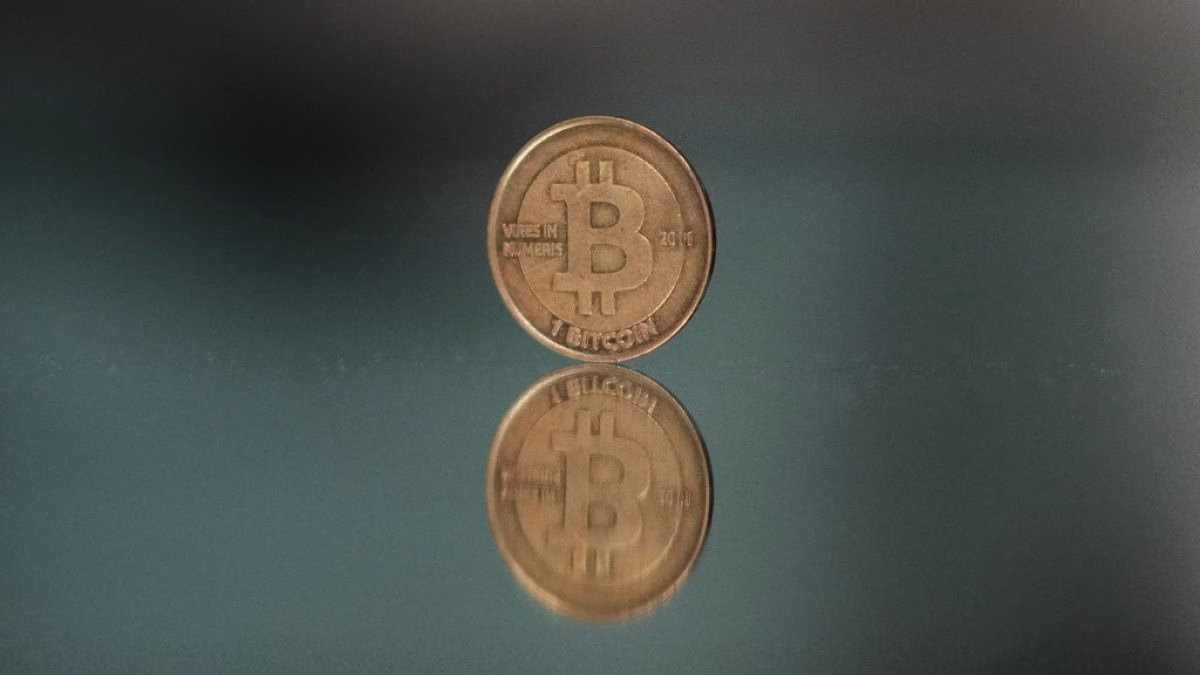ADVERTISEMENT
The Bitcoin (BTC) price is predicted to reach a peak of $162,353 this year (€139,148), stabilizing at approximately $145,167 (€124,418).
These predictions come from UK fintech company Finder, which collected insights from 24 cryptocurrency experts.
Respondents’ estimates vary widely, with optimistic forecasts suggesting a peak of $250,000 this year. The average lowest prediction is $87,618, with some forecasts expecting Bitcoin to dip as low as $70,000.
Lately, Bitcoin has surged from just below $100,000 at the end of last year up to $120,000.
There are several factors driving up demand for Bitcoin, including clearer and more positive regulation, wider utility such as for payments, and shifting economic scenarios,” explained Przemysłau Kral, CEO at Zondacrypto.
He attributed the recent rise notably to regulatory developments, such as the EU’s MiCA, which streamlines crypto-assets market rules across the EU. Combined with growing interest from institutional investors, primarily through exchange-traded funds (ETFs), these changes make cryptocurrency more accessible.
ETFs based on cryptocurrencies simplify investment in cryptocurrencies for investors without the necessity of direct purchase. Bitcoin ETFs have surged in popularity since they began trading in US markets last year.
Is a Bitcoin bubble forming?
While Bitcoin’s integration into mainstream finance has undeniably increased interest in the cryptocurrency, there’s concern about a potential bubble, where the price increases are driven by investor speculation rather than intrinsic value.
Ravi Sarathy, a cryptocurrency expert and professor at Northeastern University, said significant institutional investors, including MicroStrategy, are accumulating large amounts of Bitcoin, potentially inflating the cryptocurrency’s price. MicroStrategy holds a Bitcoin stake worth about $65 billion.
The previous reluctance among institutional investors to engage with Bitcoin has shifted with new US measures allowing Bitcoin ETFs, making it more accessible and convenient for both institutions and retail investors, Sarathy told Euronews Business.
Bitcoin’s limited supply of 21 million can lead to price increases due to high demand, as explained by Sarathy. Digital Asset Treasuries are another strategy that has also impelled Bitcoin price growth by attracting investments in various cryptocurrencies and tokens.
Washington’s role in Bitcoin’s surge
Interest in Bitcoin has dramatically increased following US President Donald Trump’s campaign to establish America as the global cryptocurrency hub. Bitcoin’s momentum has been further bolstered by the US government recently designating ‘Crypto Week’ and today lawmakers are considering legislation that could set the industry’s regulatory framework in the U.S.
“Interestingly, both Bitcoin and crypto, initially promoted as an alternative to government-backed currencies and backed by libertarians, are now being propped up by the Trump administration,” noted John Hawkins, a senior lecturer at the University of Canberra.
Hawkins believes that the token “lacks any fundamental value, and after 16 years, it has failed to achieve its initial goal of becoming a common payment method. It remains a speculative bubble.”
Others view Trump’s support as a reason to invest.
Desmond Marshall, the managing director at Rouge International & Rouge Ventures, said, “With Trump’s embrace of digital crypto assets, his sons’ involvement in significant crypto projects, and the robust US dollar, the US government is joining in with substantial BTC reserves. This is further supported by numerous businesses exploring enterprise crypto strategies.”
The most optimistic crypto specialists, predict a substantial price increase, speculating that Bitcoin could hit $250,000, supported by institutional demand.
“Institutional and corporate demand is ongoing, while retail is still on the sidelines and adoption by countries just starting,” said Martin Froehler, CEO of the Morpher trading platform.
Despite ongoing uncertainties, including tariff tensions, Middle East conflicts, and lack of monetary policy easing in the US, Bitcoin’s price has risen nearly 25% this year.
Is now the right time to buy Bitcoin?
About 61% of the experts surveyed believe it’s the right time to buy.
However, cautioned Przemysłau Kral, CEO at Zondacrypto, that with so much excitement comes a need for care. “No one can predict whether the price will go up or down,” he told Euronews. “We always recommend doing your research and getting educated about Bitcoin before investing.”
Kadan Stadelmann, the CTO at Komodo Platform, expects Bitcoin to gradually increase in value over the next six months before entering a bear market (when investors mainly sell instead of buy).
“Considering Bitcoin reached $110,000 already and with at least six months left in this bull run… I expect the peak around the first quarter of 2026 followed by a bear market,” said Stadelmann.
When asked about their long-term expectations, the crypto specialists surveyed by Finer said Bitcoin could reach values of $458,647 by 2030 and exceed $1 million by 2035.
Quantum computing’s potential impact on Bitcoin’s security
The vast majority of the crypto specialists surveyed (79%) view quantum computing as a threat to Bitcoin’s cryptographic security, as quantum computers could potentially compromise the encryption standards that protect cryptocurrencies.
A quarter of the experts (25%) believe that quantum computers could crack Bitcoin within the next five years, and another 25% feel it’s a feasible risk within the next five to ten years. The remainder (29%) say it will take longer than ten years.
Only 8% say quantum computers pose no threat, and only one-third of the experts are confident that the Bitcoin community is somewhat prepared to address this threat.
Disclaimer: This information is not financial advice; always conduct your own research to ensure it aligns with your specific circumstances. This site is a journalistic platform seeking to provide the finest guides, tips, and recommendations from experts. If you rely on this page’s information, you do so at your sole risk.






